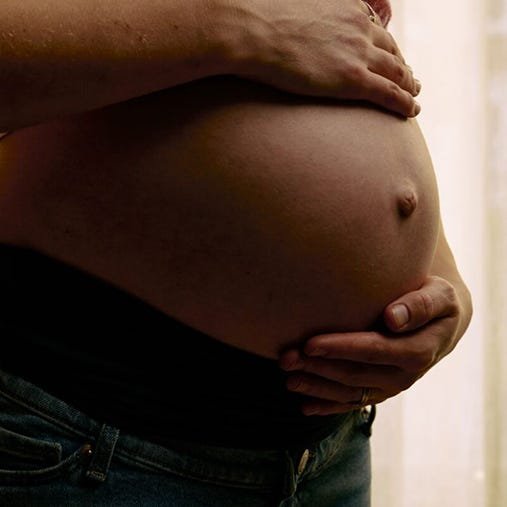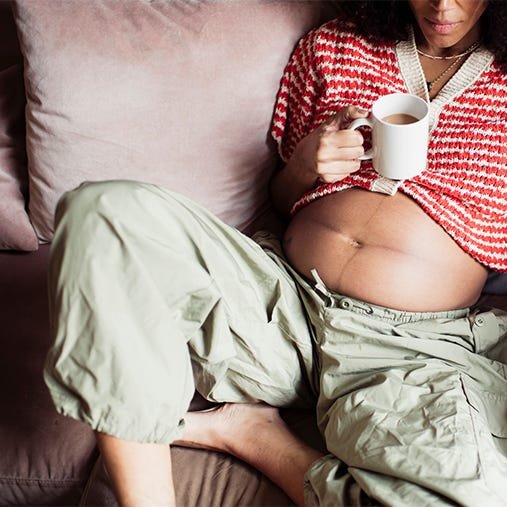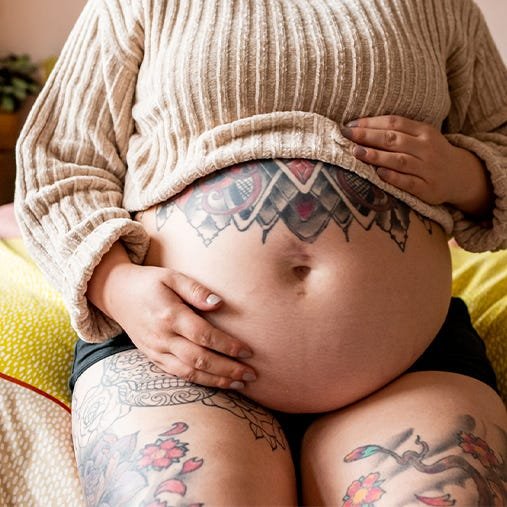Have sleepless nights got you feeling extra tired during pregnancy? We've got your back. As your body undergoes significant changes, it's common to experience disrupted sleep patterns during all three trimesters of pregnancy.
We’ve written this guide to help you catch some Z's and feel better.
Why is it hard to sleep when pregnant?
There are several reasons why you might be having trouble sleeping during pregnancy:
- Hormonal changes: Fluctuating hormones like estrogen and progesterone can disrupt your sleep pattern, making it harder to fall, and stay asleep at night.
- Physical discomfort: Back pain, heartburn, frequent urination, and restless legs syndrome can make it difficult for pregnant people to get comfortable at night. And as your baby grows, you may experience discomfort from your growing bump.
- Anxiety and stress: It's normal to feel anxious or stressed about pregnancy, childbirth, and becoming a parent. These worries can keep you up at night and make relaxing difficult.
If you are pregnant and experiencing sleep difficulties, it's important to talk to a healthcare professional to rule out any underlying medical conditions. Your doctor will be able to give you professional advice and manage any related discomfort you're experiencing.
Tips for getting more sleep when pregnant
Sleep can be tricky when you're pregnant, but don't worry! We've got some tips to help you sleep better.
Remember, what works for one person might not work for another, so experiment and find what works best for you. Here are some simple steps to try that may help you sleep better throughout your pregnancy.
- Talk to your doctor: If you're having trouble sleeping, talk to your doctor. They can rule out any underlying medical conditions and offer additional tips and support to help improve your sleep throughout your pregnancy.
- Manage stress and worries: Anyone who’s stressed can find it difficult to sleep. Try relaxation techniques such as meditation or deep breathing to help manage stress. If you’re feeling worried, don’t hesitate to share how you’re feeling with your loved ones.
- Create a comfortable sleep environment: Try to keep your bedroom dark, quiet, and cool. Make your bed with soft, comfortable sheets made from natural fibers (like cotton and linen), wear comfortable, lightweight sleepwear so you don’t get too warm during the night, and use pillows that support your body and developing bump.
- Find a comfortable, safe sleeping position: From around the middle of your pregnancy, the best position for sleeping is on your left side. This position helps to improve blood flow to the placenta and fetus, which is important for their health and development. Try to get into the habit of going to sleep on your left side, but don’t worry if you wake up on your back, you can turn over and go to sleep again on your side.
- Use pillows or cushions: Try using your usual pillows or a pregnancy pillow to support your back and bump, and you can also place pillows between your knees to improve your sleep posture. If you’re experiencing indigestion or heartburn during pregnancy, you can try raising the head of your bed by 10 to 15cm, or sleep propped up on lots of pillows.
- Rest during the day if you can: Try to have a daytime nap and rest as much as you can during the day if you’re finding it hard to sleep at night.
- Get into a steady and relaxing nighttime routine: Having a consistent routine at night can help signal to your body that it's time to wind down. Try taking a warm bath, reading a book, or listening to calming music before bed. And remember to go to the toilet before bed to empty your bladder!
- Limit your caffeine intake: Caffeinated drinks like soda, tea, and coffee can disrupt sleep, so it's best to avoid these when pregnant, especially in the evening. To learn more, read our guide on foods and drinks that pregnant people should avoid.
- Try to maintain a healthy lifestyle: Eating well, exercising, and staying as active as possible throughout your pregnancy can help improve your overall health and wellbeing, which in turn, can lead to better sleep. Getting enough fresh air can also help.









